Ten pioneering women in spirits
To mark International Women’s Day today (8 March), we spoke to some of the spirits industry’s leading women and up-and-coming female talent.
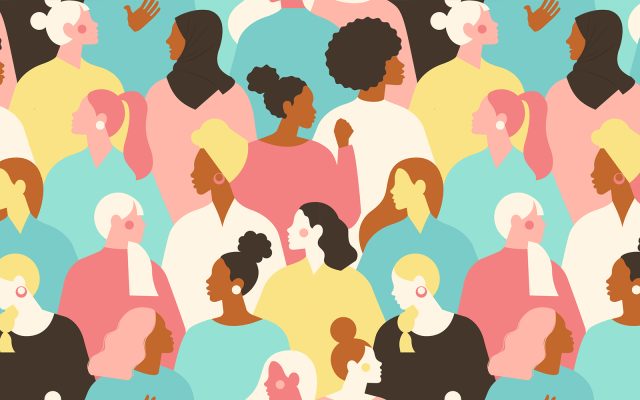
From founders and distillers to brand ambassadors and bartenders, each of these trailblazers brings a unique perspective, passion and expertise to the table.
Read on to discover how the industry has developed in recent years and what challenges remain for women in spirits.
Fawn Weaver, co-founder, Uncle Nearest
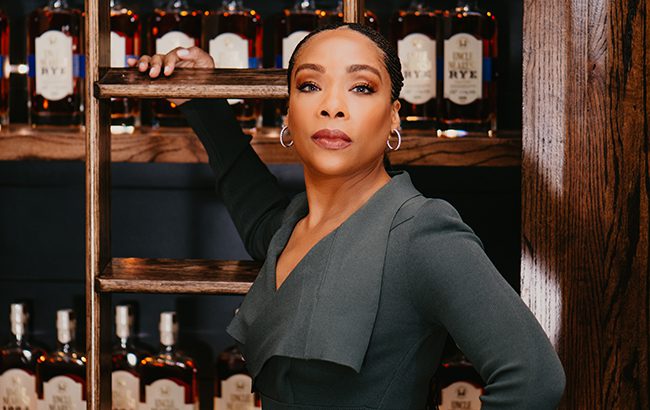
Have you faced any challenges as a woman in the spirits industry?
Being a woman is a significant advantage in this industry. My entire leadership team are women and we are often underestimated. It’s been a unique marketing opportunity for us. Given that the population of the US is 70% women and people of colour, being able to authentically connect with this demographic is crucial.
How do you think the industry has evolved in terms of gender inclusivity since you started your career?
I remember one event early in my career where the audience was 1,000 white men and only a handful of women. It was reflective of the industry at the time. In recent years, there’s been a shift towards greater gender inclusivity.
The all-women leadership team at Uncle Nearest challenged preconceived notions and paved the way for increased opportunities for women. From a time when all six spirit conglomerates were led by men to now half of them being run by women, the progress we’ve made in just a few years is remarkable.
How can the industry improve?
Improvement is needed across the board, not just within our industry but in every sector. This involves creating more opportunities for women at all levels and ensuring their voices are heard and valued.
Rachel Hall, head distiller, Lighthouse Gin
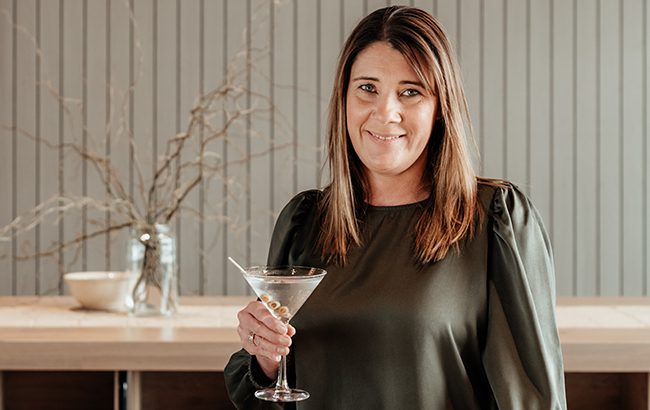
Have you faced any challenges as a woman in the spirits industry?
In the first few years, I found it challenging because there weren’t any female distillers. And when they started to pop up, they were very far away – so it was hard to connect with them. Being out on the road to various shows and gin events really helped to develop those relationships.
Finding a good work-life balance can be more difficult for women, but that is becoming easier, especially if you work for a good company. I’m married with two children, and my daughter works with me.
How do you think the industry has evolved in terms of gender inclusivity since you started your career?
Since I started, the spirits industry has evolved. More companies like ours support women in leadership. There are a lot more women from many different backgrounds distilling and producing. They are chasing their passion more freely.
I feel women’s opinions are also becoming more valued. More women are writing about and presenting spirits very successfully, with strong followings on social media.
How can the industry improve?
It’s a continuously evolving industry and we need to accept change if we are to move forward. How we react to that change is what will make us successful.
Léa Rouel, mixologist, Cambridge Public House
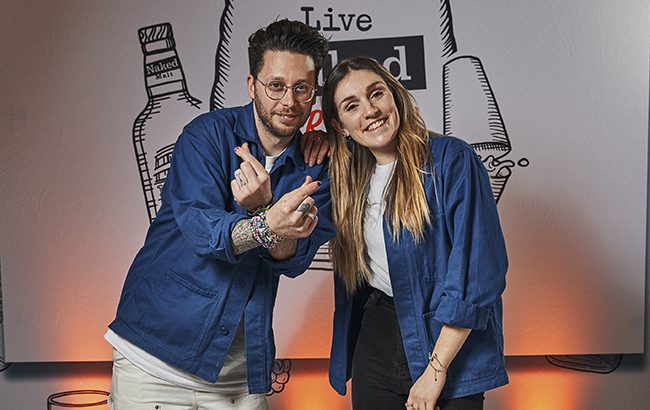
Have you faced any challenges as a woman in the spirits industry?
My first bar manager was a woman, so I didn’t immediately notice any issues. Later, I joined a team of 12 – 11 of whom were men. I knew everyone well and we chatted openly. I quickly realised that I was being paid much less than everyone else – even those who had the same experience as me. I had to negotiate with the bosses to get the same pay.
Even though I was successful, it was crazy that they had only hired one woman in such a big team and they were paying me less for the same role.
How do you think the industry has evolved in terms of gender inclusivity since you started your career?
Mentalities have changed and are continuing to evolve, which makes it easier for women to enter this field. Most bars now think about having balance in their teams.
There are a lot more women in guest shifts and taking part in competitions. Recently, I was one of two bartenders to represent the Cambridge Public House in Naked Malt’s Live Naked Bar Swap competition, which we won for France.
I feel my skills are recognised by my team and I have the same opportunities as my male colleagues, which is how it should be. I dream of the day when we no longer need to ask women about gender inclusion in this industry, when there will be as many women as men, especially in prominent positions. It will have become normal.
Joy Spence, master blender, Appleton Estate
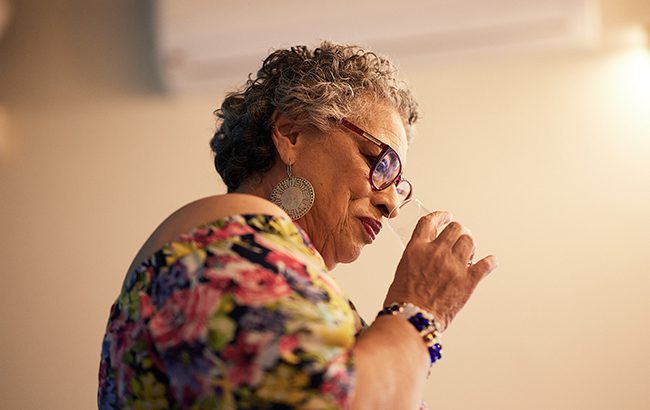
Have you faced any challenges as a woman in the spirits industry?
As the first woman to be appointed master blender, there were some challenges. But I ignored the hallway gossip and focused on my craft, which saw me go a lot further than if I’d worried about what people were saying.
How do you think the industry has evolved in terms of gender inclusivity since you started your career?
It has evolved greatly since I was appointed and I would like to think I have been something of an agent of change. The industry has been male-dominated but I hope I’ve helped to open doors. We’re certainly seeing an evolution, but we can’t stop here.
I was excited to see Trudiann Branker appointed as master blender in Barbados and wish her lots of success in the role.
How can the industry improve?
The industry could improve in terms of diversity and empowerment. Allowing women to have a seat at the table will see us come on leaps and bounds. This is why I have a particular philanthropic focus on education and spend a lot of my time helping women in STEM to progress and succeed – of course, when I’m not at the distillery!
Dr Kirstie McCallum, master blender, Whyte & Mackay
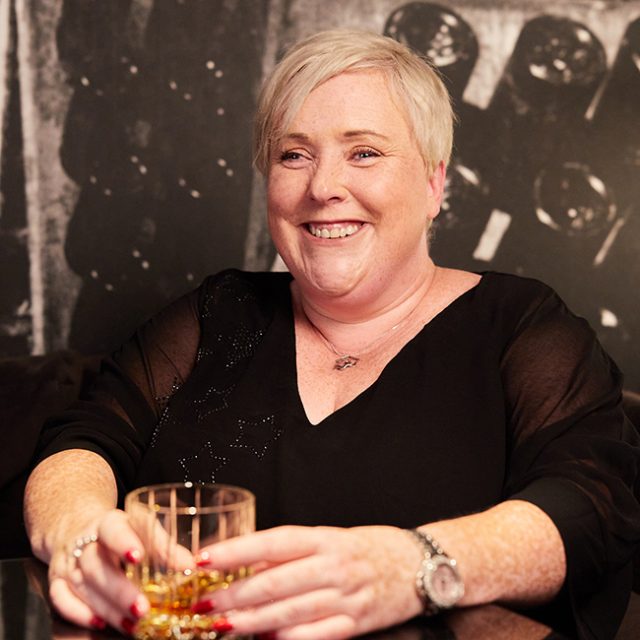
Have you faced any challenges as a woman in the spirits industry?
I have always believed it should be about your ability to do your job, not your gender. In my experience, this has mostly been the case. In my first role, I was the only woman and I was accepted as part of the team.
However, I have sometimes felt an imbalance – whether that be the question of if a woman could or should hold the same position as a male counterpart, or about capability. Sometimes it feels like we have to do a little bit extra to prove ourselves.
Until recently, there has been a glass ceiling when it comes to career progression, but I believe that this is changing.
How do you think the industry has evolved in terms of gender inclusivity since you started your career?
Women have always been in the whisky industry, but behind the scenes. Most of the technical centres and labs I have worked in have had a majority female staff. But there has been a big shift, specifically when you look at the types of roles. More women are taking external-facing roles, such as distillery managers, master blenders, directors and senior managers.
How can the industry improve?
We are on a good trajectory. Whisky is becoming more inclusive. In my team, we have an even split of female and male colleagues.
Importantly, the consumer is changing, with more women and young people getting into whisky.
There is still a way to go for full inclusivity, not just gender equality. There is awareness of this. Great mentoring and support programmes are available, which can only be a positive step.
Charlotte Pederson, UK brand ambassador, Maker’s Mark
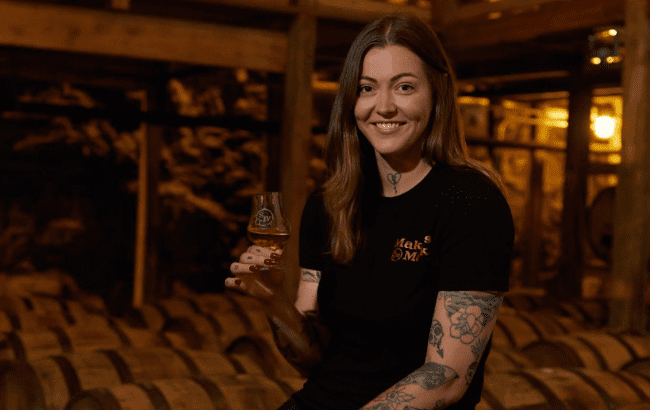
Have you faced any challenges as a woman in the spirits industry?
Navigating what can be perceived as a male-dominated industry can have its challenges. My approach has always been to demonstrate competence and passion, while sharing the wonderful work of so many women in the industry.
How do you think the industry has evolved in terms of gender inclusivity since you started your career?
The industry has definitely evolved. When I first started my bartending career, almost every brand ambassador I knew was a man. However, one of the first cocktail bars I worked at, in 2014, coincidentally happened to be an all-female team, which was a rarity at that time.
Platforms and initiatives aimed at celebrating and supporting underrepresented groups such as Celebrate Her, Equal Measures and OurWhisky Foundation have helped played a pivotal role in this progress, creating more opportunities and fostering a welcoming environment.
How can the industry improve?
There have been huge efforts made by brilliant people in the industry to do better. There are some incredible platforms that didn’t exist 10 years ago that have given a voice to people, and I think they have had a huge impact on the available opportunities.
Yadira Hernàndez Lozana, master distiller, Cazcabel Tequila
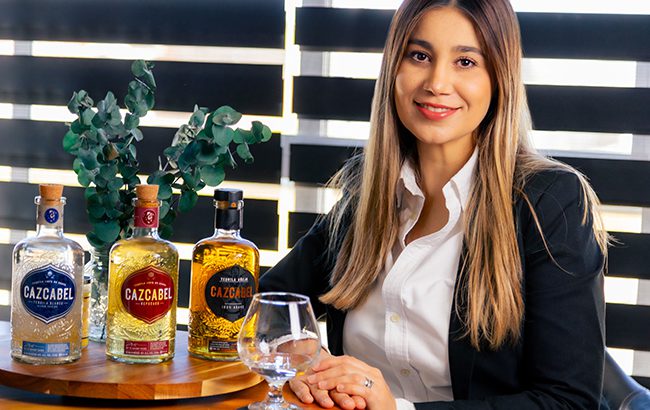
Have you faced any challenges as a woman in the spirits industry?
Early in my career, when I was working in distilleries that worked with multiple brands, I wasn’t really given any important positions with the clients we collaborated with. They thought I would be distracted or not committed to my work.
How have you overcome them?
I faced up to it by empowering myself and doing independent research, which meant I could demonstrate my skills and challenge people with more confidence. I wanted to show what can be delivered when you are passionate about your working life and give 110%.
How do you think the spirits industry has evolved in terms of gender inclusivity since you started your career?
Even today the gender gap is still apparent, but recently the contributions and capabilities of women are gradually being recognised more, allowing us to lead important projects. Working together with everyone at the distillery, we can exceed our goals and demonstrate excellent results.
Shaylyn Gammon, head of innovation and development for whiskies, Coors Spirits Co
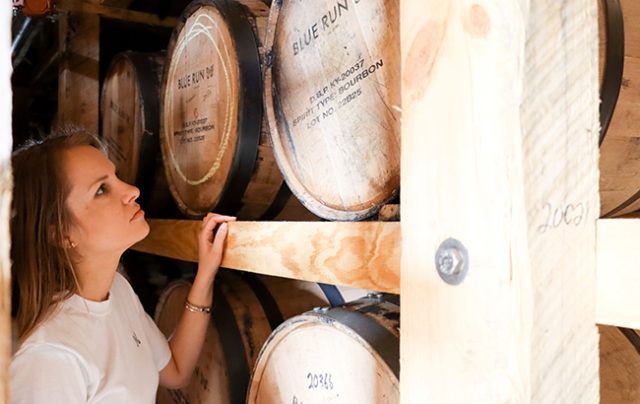
Have you faced any challenges as a woman in the spirits industry?
This topic comes up frequently. Women – unjustly – face challenges every day trying to prove our legitimacy. The specificity and complexity of my role as a scientist keeps some opinionated people at arm’s distance. However, all women have to work around preconceived notions – some people generally assume that the oldest man in a room is the most experienced or knowledgeable.
I’ve experienced this time and time again. I owe it to myself and the other women in this industry (and those who will be in this industry in the future) to continue to assert myself thoughtfully.
How do you think the industry has evolved in terms of gender inclusivity since you started your career?
There are more women in leadership roles today than there were just five years ago. That is encouraging and empowering.
I wish we never had to read another story about women in whisky. It would be great if those were replaced by ‘people making great whisky’. That said, if those kinds of stories inspire other women to join the spirits industry, then I am all for it. We need to let folks know that this business is for everyone.
How can the industry improve?
Many companies will say the right things publicly and even have the best intentions, but they don’t always follow through. Blue Run [part of Coors Spirits Co] has made a big commitment to backing up its talk and I hope this approach is infectious.
Giving women the opportunity to handle roles they are capable of and elevating their opinions are great places to start. The industry can only benefit from including and respecting as many diverse opinions as possible. It’s the only way to evolve.
Jules Marohl and Katina Aziz, co-owners, MayaJules Mezcal
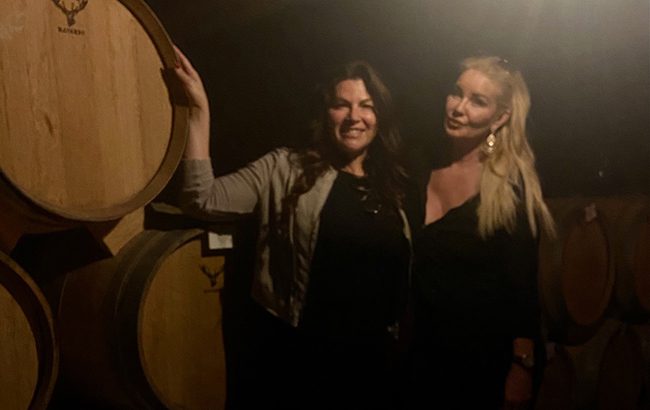
Have you faced any challenges as a woman in the spirits industry? How have you overcome them?
It is a male-dominated industry and at times it feels like we must work a bit harder to prove ourselves as knowledgeable spirits producers. We overcome it by just doing it and showing up every day ready to go. We don’t let it get us down.
How do you think the spirits industry has evolved in terms of gender inclusivity since you started your career?
Women are being recognised more, from distillers and producers to bartenders, which is making it more attractive for women to enter the industry. There’s definitely been growth in the representation of women, which is exciting.
Where and how can the industry improve?
It would be great to see a more unified community so we can support each other in all aspects of starting and growing a business.
Cristiana Pirinu, bar supervisor, the Donovan Bar
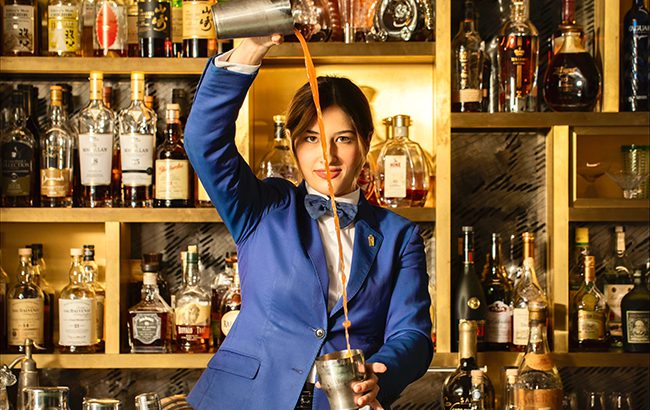
Have you faced any challenges as a woman in the spirits industry? How have you overcome them?
One challenge I’ve faced is the perception of some guests who may not recognise or acknowledge women in certain roles. There have been occasions when I’ve been in charge of the bar and guests have preferred to speak to a male manager.
How do you think the spirits industry has evolved in terms of gender inclusivity since you started your career?
Initially, the industry was mainly male-dominated. But today, more women are visible in various aspects of the spirits industry, including distilling, bartending, brand representation, and leadership positions.
How can the industry improve?
Overall, the industry is making progress towards supporting individuals facing difficulties at work or in their personal lives, thanks to various mental health organisations.
It is crucial to continuously strive for gender equality across all levels of the industry. Implementing initiatives to address disparities and promote equal opportunities is essential. Embracing diversity and inclusivity – including race, ethnicity, and sexual orientation – is important. Creating a supportive environment for individuals from diverse backgrounds is key to making them feel comfortable in the workplace.
Related news
Hidden Barn names Molly Wellmann master taster
